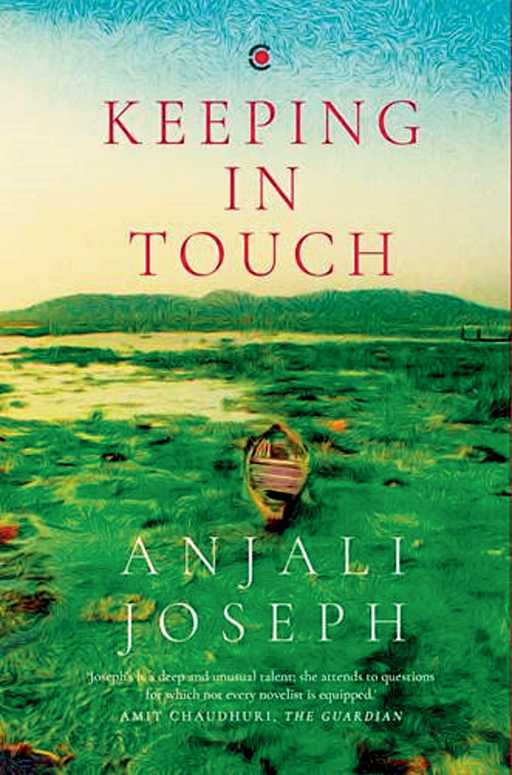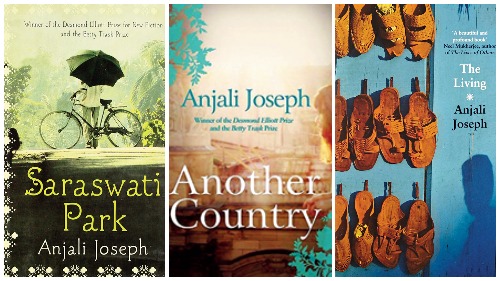Author of Saraswati Park, The Living and Another Country and winner of Desmond Elliot Prize, the Betty Trask Prize and the Crossword Book Award, Anjali Joseph boasts of an enviable oeuvre that is poised delicately on her understanding of the world around her. So when she decided to write a story of love replete with distance, trauma and the foils of a modern relationship, one had to sit up and take notice. Her latest novel, called Keeping In Touch (Context; Rs 599), pans across Assam and London, narrating the tale of commitment-phobic Keteki and confused bachelor Ved. At the age of 39 when life ceases to surprise you, these two characters’ lives intertwine in a manner that feels familiar yet alien at the same time.

Keeping In Touch; Context, Rs 599
Keteki and Ved meet at an airport and soon find themselves caught in the “intricate and transformative dance of a long-distance relationship” where the timing is never really right. In the background of this dance is a light-bulb company on the verge of a breakthrough in their technology, while being plagued by inexplicable forces that command the future of the company. The humour is wry while the history is rich, making for a fantastic read that keeps you guessing what happens next. t2 got in touch with the London-based author to find out what was going on in her mind when she was penning this novel that leaves you feeling a myriad set of emotions after you have turned the last page. Excerpts.
Could you please reflect upon the choices made behind the name of the book?
In 2014 I was living in Norwich in the East of England, where I’d been doing a doctorate and teaching part-time at the University of East Anglia. I was having breakfast with a friend one Sunday and she happened to say that she was bad at keeping in touch with friends in different places. The phrase hung in the air for me and I went home and wrote it down, deciding that the novel I was thinking about writing next would be called Keeping in Touch. At that point what I had in mind was to do with the idea of keeping in touch with one’s inner self, as well as with other people. I’d been reading about telepathy in books, like Rupert Sheldrake’s Dogs That Know When Their Owners Are Coming Home, and the idea of communication over a long distance was on my mind.
How did you arrive at Keteki’s age when you were writing about her?
It seemed right. She and Ved are in a period of life where they’re neither very young and reckless nor old enough to know better. Both of them have found ways to manage their lives so the question is whether they will stick to what’s comfortable, or risk the great adventure?
What kind of research went into the book?
A lot of the things I did in the three years I lived in Guwahati fed into the book, directly and indirectly. I read histories of Assam, and, of course, fiction by Assamese writers, including some classic short stories in Assamese which I read very haltingly with the help of two different teachers. I made friends, and took lots of short trips, many alone, to places in upper Assam and a few times to Majuli (once by boat from Guwahati, but that’s a whole other story). My friend Veda visited from Calcutta and we rented a car and drove all the way along Dhudor Ali, the seventeenth-century road that runs from Golaghat to Joypur, and which the Ahom king Gadadhar Singha forced some of his more easygoing subjects, or dhuds, to construct. While staying with my parents in Pune, I visited a lightbulb factory outside the city where the chief engineer was kind enough to show me around and answer my many questions. More recently, I spent a while trying to track down a friendly venture capitalist in London who would tell me where men who work in finance buy their clothes these days.

Tell us about your choice to set the book in Assam and making it rich in the land’s history.
When I was wondering where would be the next place after Norwich, I spent a couple of months in Shanghai on a writing residency, and a few months later, I made a trip to Guwahati and Shillong. I’d half thought about moving to Beijing and teaching English, but after my first trip to Assam I realised that was where I wanted to live. Assam is such a beautiful and interesting place, and I loved learning more about it.
Do you have a reader in mind when you write a book? What feeling would you want them to have when they arrive at the last page?
I have a very abstracted reader in mind, I suppose: I don’t imagine a specific person or type of person. I hope the feeling for this book would be something like a sense of being lighter in some way if a little sad to leave behind the world of the book.
What can we expect next from your table?
I’m working on a novel about a 19th- and 20th-century naval officer and archaeoastronomer named Henry Boyle Townshend Somerville who I learned of a couple of years ago when I visited West Cork.










